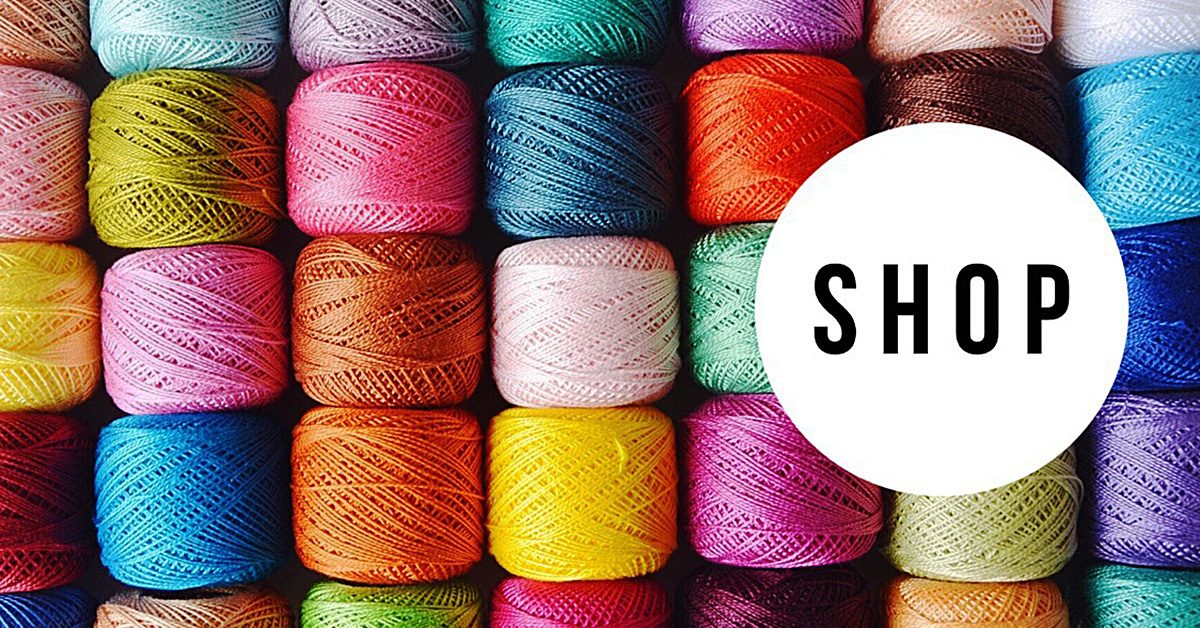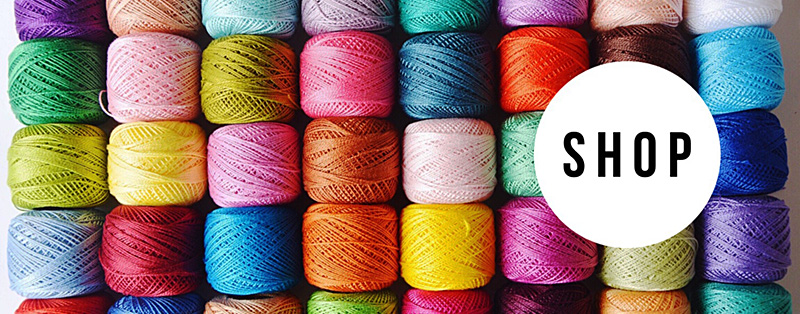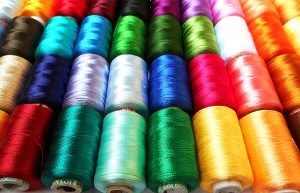Click the image to get your thread!
Choose the right type of sewing thread for your next project
Any sewing enthusiast knows that a seam is only as good as the thread that holds it together. From polyester to silk, the type of thread you choose for your next project can leave you happy — or horrified. Luckily, we’ve put together a brief rundown of five popular types of thread, so that next time you’re at the fabric store, staring down hundreds of spools, you can confidently pick the right one for the job.
Cotton thread
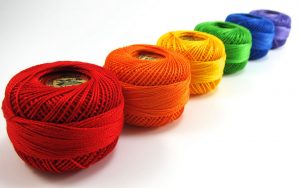
Cotton thread is washable & wearable but has “give” — which makes it great for quilting, piercing & appliqué projects.
A common “go-to” for many sewing enthusiasts, cotton thread is washable and wearable but has “give” — which makes it great for quilting, piercing, and appliqué projects. Keep in mind, though, that the lower the weight, the heavier and thicker the thread. If your next project is a thin blouse or lingerie set for example, consider using 50 weight cotton thread: this thin thread has less bulk, so your seams will lay flatter. For an “all-purpose” quilting thread, a middle-of-the-road 40 weight cotton thread is ideal (for both machine and long-arm quilting); it’s thin enough to glide easily through thick fibers, but strong enough to secure your quilt. Finally, a 30 weight cotton thread has the thickness necessary for dramatic accents in topstitching and quilting stitches.
Rayon thread
The most commonly used thread for embroidery, rayon is relatively inexpensive and provides a decorative finish with shine. Rayon thread also has high tensile strength: it doesn’t break easily and is very stretchable and flexible, even when wet. However, rayon is usually not colorfast and often fades or bleeds from fabric.
Polyester thread
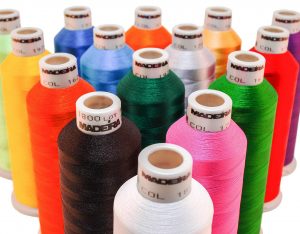
Stronger than rayon thread, polyester thread is a great “all-purpose” choice that can be used for most sewing projects, both hand- & machine-sewn.
Stronger than rayon thread, polyester thread is a great “all-purpose” choice that can be used for most sewing projects, both hand- and machine-sewn. Polyester thread has some “give” to it, so unlike cotton, it won’t break when you use it with stretchy fabrics; polyester thread also remains bright after several washes. If you need a thread that will slip through fabric easily, you can also choose a glazed polyester thread, which will have a wax or silicone finish. It’s important, however, to avoid using glazed threads for machine-sewn projects, because the glaze can rub off and jams your machine.
Metallic thread
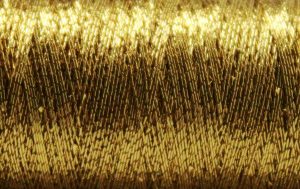
Designed for embroidery, quilting, & decorative stitching projects, metallic thread can be used to create beautiful topstitching designs.
If your handbag needs touching up, metallic thread may be the perfect choice. Designed for embroidery, quilting, and decorative stitching projects, metallic thread can be used to create beautiful topstitching designs. Often available in gold, silver, and copper varieties, metallic threads are smooth, strong and vibrant.
Silk thread
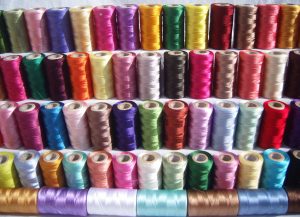
Thin but strong & flexible with a lot of “give,” silk thread is also ideal for basting stitches and tailoring curved areas.
When sewing silk or wool fabrics, silk thread is the obvious choice. Thin but strong and flexible with a lot of “give,” silk thread is also ideal for basting stitches and tailoring curved areas.
Now choose wisely
Overall, the key to a durable and professional-looking finish is choosing a high-quality thread that closely matches the weight and fiber content of the fabric you’re working with. Take it from us: using the perfect thread will make sewing your next project that much more enjoyable.

